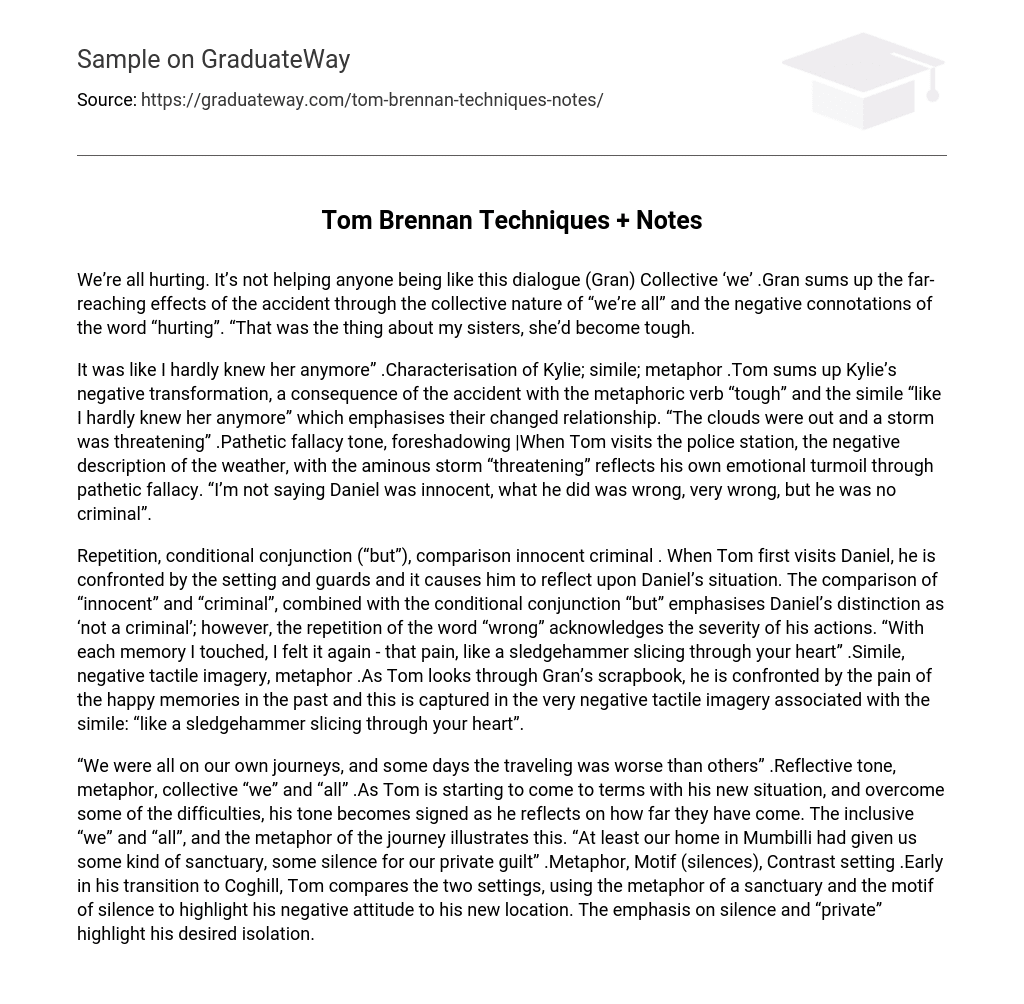We’re all hurting. It’s not helping anyone being like this dialogue (Gran) Collective ‘we’ .Gran sums up the far-reaching effects of the accident through the collective nature of “we’re all” and the negative connotations of the word “hurting”. “That was the thing about my sisters, she’d become tough.
It was like I hardly knew her anymore” .Characterisation of Kylie; simile; metaphor .Tom sums up Kylie’s negative transformation, a consequence of the accident with the metaphoric verb “tough” and the simile “like I hardly knew her anymore” which emphasises their changed relationship. “The clouds were out and a storm was threatening” .Pathetic fallacy tone, foreshadowing |When Tom visits the police station, the negative description of the weather, with the aminous storm “threatening” reflects his own emotional turmoil through pathetic fallacy. “I’m not saying Daniel was innocent, what he did was wrong, very wrong, but he was no criminal”.
Repetition, conditional conjunction (“but”), comparison innocent criminal . When Tom first visits Daniel, he is confronted by the setting and guards and it causes him to reflect upon Daniel’s situation. The comparison of “innocent” and “criminal”, combined with the conditional conjunction “but” emphasises Daniel’s distinction as ‘not a criminal’; however, the repetition of the word “wrong” acknowledges the severity of his actions. “With each memory I touched, I felt it again – that pain, like a sledgehammer slicing through your heart” .Simile, negative tactile imagery, metaphor .As Tom looks through Gran’s scrapbook, he is confronted by the pain of the happy memories in the past and this is captured in the very negative tactile imagery associated with the simile: “like a sledgehammer slicing through your heart”.
“We were all on our own journeys, and some days the traveling was worse than others” .Reflective tone, metaphor, collective “we” and “all” .As Tom is starting to come to terms with his new situation, and overcome some of the difficulties, his tone becomes signed as he reflects on how far they have come. The inclusive “we” and “all”, and the metaphor of the journey illustrates this. “At least our home in Mumbilli had given us some kind of sanctuary, some silence for our private guilt” .Metaphor, Motif (silences), Contrast setting .Early in his transition to Coghill, Tom compares the two settings, using the metaphor of a sanctuary and the motif of silence to highlight his negative attitude to his new location. The emphasis on silence and “private” highlight his desired isolation.





